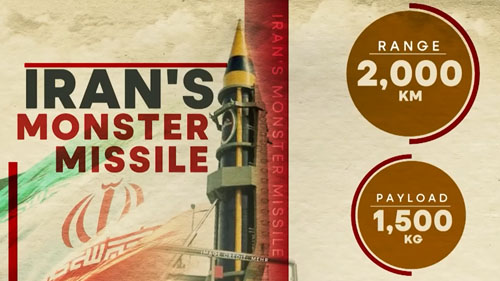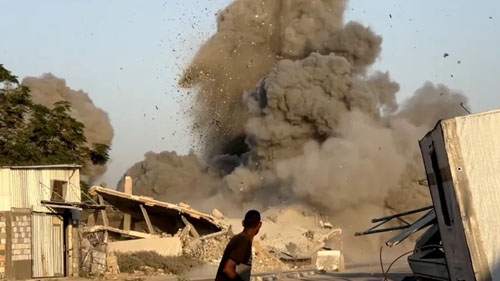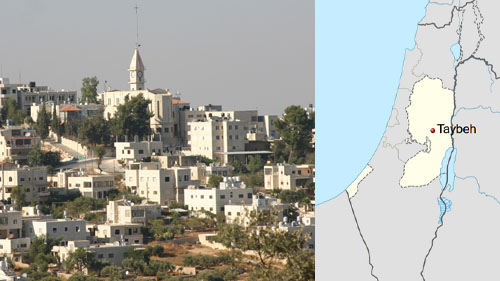| Recent Featured Videos and Articles | Eastern “Orthodoxy” Refuted | How To Avoid Sin | The Antichrist Identified! | What Fake Christians Get Wrong About Ephesians | Why So Many Can't Believe | “Magicians” Prove A Spiritual World Exists | Amazing Evidence For God | News Links |
| Vatican II “Catholic” Church Exposed | Steps To Convert | Outside The Church There Is No Salvation | E-Exchanges | The Holy Rosary | Padre Pio | Traditional Catholic Issues And Groups | Help Save Souls: Donate |  |









 " />
" /> " />
" /> " />
" /> " />
" /> " />
" />




North Korea's Rare Earths Could be Game Changer
Daniel Schearf voanews.com SEOUL — A recent geological study indicates North Korea could hold some 216 million tons of rare earths, minerals used in electronics such as smartphones and high definition televisions. If verified, the discovery would more than double global known sources and be six times the reserves in China, the market leader. British Islands-based private equity firm SRE Minerals Limited announced the study results in December, along with a 25-year deal to develop the deposits in Jongju, northwest of the capital, Pyongyang. The joint venture, called Pacific Century Rare Earth Mineral Limited, is with state-owned Korea Natural Resources Trading Corporation. The potential bonanza could offer the isolated and impoverished North a game-changing stake in the rare earths industry. North Korean rare earths challenge China’s monopoly? Scott Bruce, an associate of the East-West Center in Hawaii, said the deposits could not only shake China's hold on the market but also improve relations with Japan and South Korea, two of the biggest importers of the minerals. China's near monopoly on rare earths, 90 percent of the world market, led prices to skyrocket when Tokyo accused Beijing of capping exports because of political tensions. Prices have since dropped to more sustainable levels, but Beijing's control of the market has spurred a search for other sources. “If North Korea was able to launch this program and develop its own industry,” Bruce said, “it could potentially leverage them to integrate with its neighbors and no longer be the black hole in the center of northeast Asia.” North Korea's mineral wealth has for years been estimated to be worth trillions of dollars. The Jongju venture could be the first to exploit its rare earths. However, enormous political hurdles stand in the way of the potential benefits. Foreign firms face steep risks in North Korean ventures Pyongyang has no formal relations with Tokyo and remains, technically, at war with Seoul. Both countries restrict trade and investment with North Korea because of its frequent provocations and pursuit of nuclear weapons. North Korea's controlled economy, isolation, and sanctions have left its infrastructure in tatters with poor roads and unreliable energy supplies. Bruce said foreign mining companies would have to factor in those costs, along with the political risk. “The last company that really went in big in the North was of course South Koreans during the Sunshine Policy,” he said. “And you had KORES, the Korean resource group, that invested heavily in a few joint mineral projects in the north. And, then, when the political relationship between North and South deteriorated,” he continued, “they lost any word of what was happening in those mines.” As part of the joint venture, Pacific Century will build a rare earths processing plant in Jongju. North Korea's poor working conditions, including forced labor, could subject Pacific Century to rights abuse charges. Pacific Century has said it is an ethical mining company with multiple procedural controls in place to ensure it adheres to international standards. Pyongyang more interested in survival than development Leonid Petrov, a Korean studies researcher at the Australian National Studies University's College of Asia and the Pacific, said Pyongyang has no interest in making the necessary reforms to sustain foreign investment in its economy. “The two conditions of its survival, the constant crisis and the isolation which are needed for the maintenance of the regime, would be jeopardized,” he said. “Something like that already happened during the ten years of Sunshine Policy when South Korea-North Korea started trading, started cooperating. Some exchange was going on. But soon they realized for South Korea it was too expensive. For North Korea,” he said, “it was too dangerous.” In an e-mail interview with VOA, Pacific Century's Director of Operations, Louis Schurmann, said the company plans for its North Korean venture to solve the rare earths market problems. However, Petrov argues that Pyongyang would not risk change by further opening its mining sector and would likely continue selling minerals to China to earn foreign currency for the elites. “I believe that rare earth metals will remain in control by the Chinese government and the Chinese economic clout will continue protecting North Korea both militarily, logistically.” Also, Petrov said, “soft power from China is not going to betray the regime, which is used by China as a buffer state. So, this newly discovered mineral is going to buttress the regime.” to read more: voanews.com
Sign up for our free e-mail list to see future vaticancatholic.com videos and articles.
Recent Content
^